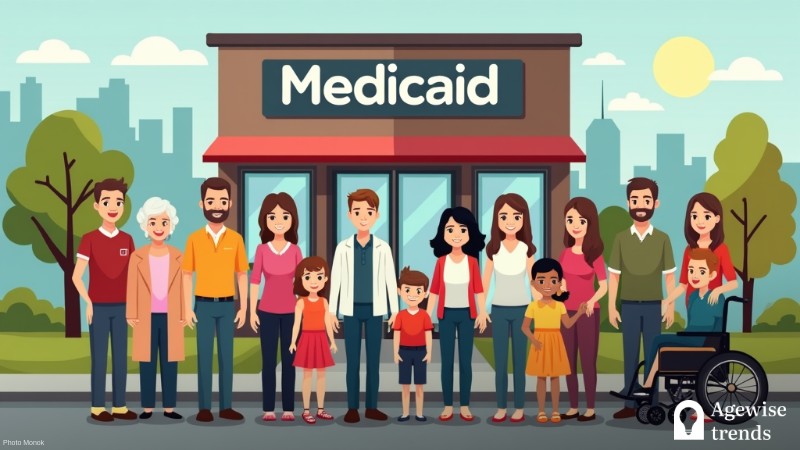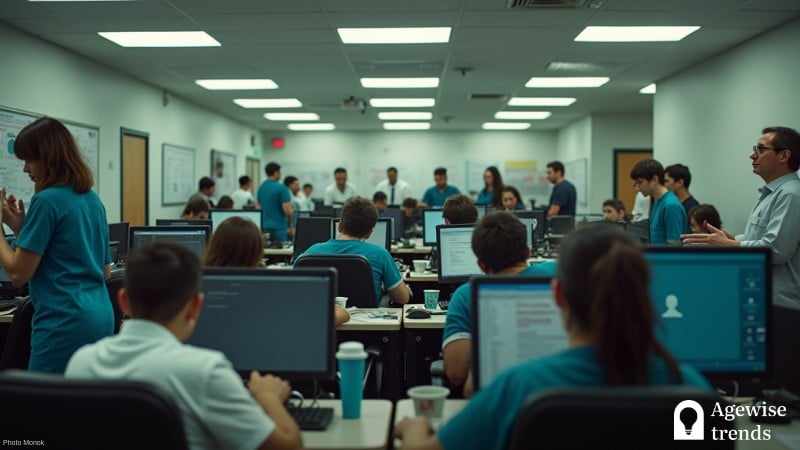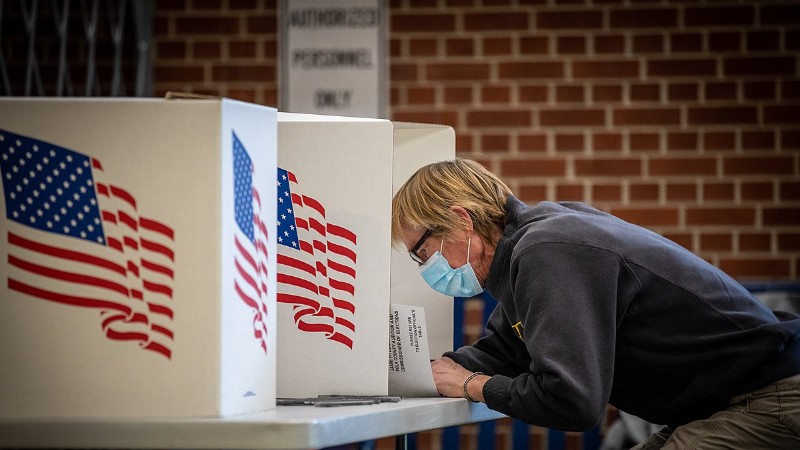House Republicans are pushing for deep cuts to Medicaid as part of their broader plan to reduce federal spending by up to $2.5 trillion. These cuts would help offset the $4.7 trillion in tax reductions they are proposing, which would primarily benefit wealthy individuals and corporations. However, the proposal is facing strong opposition from Democrats, moderate Republicans, and state leaders who worry about the impact on low-income Americans, children, and rural communities.
As Congress approaches a March 14 funding deadline, budget talks include proposed Medicaid cuts. Without an agreement, a shutdown could follow, leading to automatic spending reductions in April. While Republicans emphasize fiscal responsibility, critics argue the plan prioritizes tax breaks for the wealthy over essential healthcare programs.
Key Takeaways
House Republicans are pushing for major cuts to Medicaid to free up $4.7 trillion in tax breaks for the wealthy, a move that’s sparking heated political debate and could hit vulnerable Americans hard.
- The GOP plans to trim up to $2.5 trillion from federal spending by slashing Medicaid funding and rolling out other measures.
- Millions of low-income Americans—including children, seniors, and people in rural areas who depend on Medicaid—could see significant impacts on their healthcare.
- Fierce opposition from Democrats and moderate Republicans might delay these cuts amid concerns over the looming government shutdown deadline.
Medicaid cuts and political divisions
House GOP negotiators are considering several ways to scale back Medicaid, including block grants, per capita spending limits, and stricter work requirements for beneficiaries. These measures would shift more financial responsibility to individual states, many of which expanded Medicaid under the ACA or during the COVID-19 pandemic.
The proposed cuts have divided Republicans. While Speaker Mike Johnson (R-La.) supports them, some GOP lawmakers worry about the impact on their constituents. Rep. Jeff Van Drew (R-N.J.) warned that Medicaid covers 70 million Americans due to expanded limits.
Senate Budget Chair Lindsey Graham (R-S.C.) is pushing a budget with $340 billion for border security and the Pentagon, offset by spending cuts, including Medicaid. Speaker Mike Johnson prefers a single reconciliation bill and has urged Graham to delay, highlighting GOP divisions over budget priorities.
The impact on vulnerable populations
Medicaid serves as a critical safety net for low-income families, children, and elderly individuals. Cutting benefits could lead to millions losing access to healthcare, particularly in rural areas where Medicaid is often the only coverage option.
Children and families at risk: Medicaid covers over 40% of all children in the U.S. Reducing funding would mean fewer resources for pediatric care, vaccinations, and maternal health services. Many families who rely on Medicaid for prenatal and early childhood care could face barriers to accessing essential medical services.
Elderly and disabled populations: Many seniors depend on Medicaid for long-term care in nursing homes. Slashing funding could force families to shoulder greater financial burdens or leave elderly individuals without adequate care. Medicaid also assists disabled individuals with essential medical treatments and daily support services, meaning cuts could reduce their quality of life.
Rural communities: Rural hospitals heavily depend on Medicaid reimbursements. Funding cuts could lead to closures, limiting healthcare access for those in remote areas. Many rural residents already struggle with limited medical facilities, and further reductions in Medicaid funding could force them to travel long distances for basic care.
The looming government shutdown
Beyond Medicaid, the broader budget debate has intensified as lawmakers face a March 14 deadline to avoid a government shutdown. House and Senate Republicans remain divided on spending priorities, while Democrats claim they are focusing on tax cuts for the wealthy at the expense of vital services.
House Minority Leader Hakeem Jeffries (D-N.Y.) denies stalled negotiations, while Johnson claims an impasse. Without a deal, a shutdown could disrupt services, delay payments, and trigger automatic cuts in April across all departments.
Some Democrats have also raised concerns that the Republican approach is designed to dismantle government safety nets. Sen. Andy Kim (D-N.J.) recently stated that some Republicans appear more focused on shrinking government programs than responsibly managing the budget. “They are simply trying to dismantle the government,” he said, warning that Medicaid cuts would be a major step in that direction.
The political fallout
Medicaid cuts could have major political consequences. House Republicans risk backlash, especially in states that expanded the program under the ACA. Many represent rural districts where Medicaid is vital, making cuts a sensitive issue.
Democrats are expected to highlight the impact on children, seniors, and low-income families in upcoming elections. Rep. Van Drew has warned that defending such cuts will be difficult. With tax cuts and spending reductions on the table, internal GOP divisions and Democratic opposition could stall Medicaid changes. A looming government shutdown adds further uncertainty.














